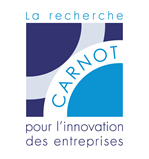Carnot Plant2Pro

The Plant2Pro Carnot Institute is dedicated to integrated Research & Development on crop production “from laboratory to field” with the ambition to support the agroecological transition and the sustainable competitiveness of crop production. Plant2Pro is a network of academic research units and agricultural technical institutes, which aims to help companies and foster innovation, technology transfer, and public-private partnership in the fields of plant breeding, varietal innovation, crop health, design of multi-performing cropping systems, digital technologies and agricultural machinery.
Key figures
| Permanent staff (full-time equivalent) | 1870 |
| PhD Students | 130 |
| Global budget | 180 M€ |
| Partnership incomes with industry | 25 M€ |
Contact
Plant2Pro Carnot Institute
INRAE
147 rue de l’université
75007 Paris
France
Rémy CAILLIATTE
Director
+33 (0)6 26 39 34 04
Claire LEMONTEY
Deputy Director in charge of program
+33 (0)1 42 75 92 96
Cécilia MULTEAU
Deputy Director in charge of partnerial
+33 (0)7 78 88 36 83
plant2pro[a]instituts-carnot.fr
Parent institutions
- AGROCAMPUS OUEST
- AGROPARISTECH
- AGROSUP DIJON
- ARVALIS - INSTITUT DU VÉGÉTAL
- CENTRE NATIONAL DE LA RECHERCHE SCIENTIFIQUE
- INSTITUT FRANÇAIS DE LA VIGNE ET DU VIN
- INSTITUT NATIONAL DE RECHERCHE POUR L’AGRICULTURE, L’ALIMENTATION ET L’ENVIRONNEMENT
- MONTPELLIER SUPAGRO
- TERRES INOVIA

